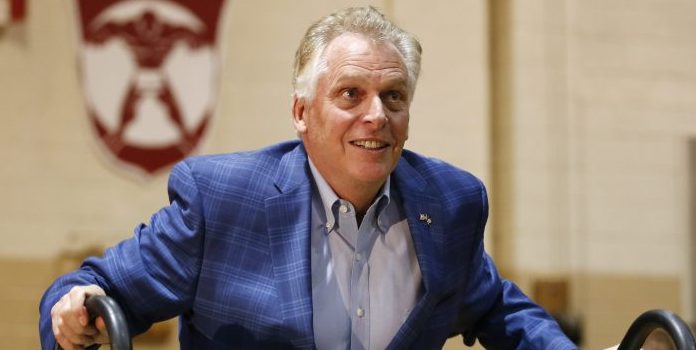Virginia gubernatorial candidate Terry McAuliffe may have violated federal law when he accepted a $350,000 donation from a scandal-ridden telecom company whose owner is a British national, the Washington Free Beacon reported.
McAuliffe, a Democrat who governed Virginia from 2014 to 2018, accepted the donation from LycaTel, which sells discounted pre-paid calling cards.
The company’s owner, Allirajah Subaskaran, is a Sri Lankan-born British citizen.
Subaskaran almost owns LycaTel outright, because his firm, London-based WWW Holding Company Ltd., holds 99% of its shares.
In an August Federal Communications Commission filing, Subaskaran called himself “a natural person and Citizen of the United Kingdom.”
Under federal law, American political candidates cannot accept donations from foreign citizens or companies owned by them.
Candidates can, however, accept donations from American-based foreign subsidiaries as long as foreign leadership does not direct the contribution.
“This is effectively a really easy way to launder foreign money into the U.S. political process and to avoid the FEC prohibition on foreign nationals making contributions in U.S. elections,” said Ben Freeman, director of the Foreign Influence Transparency Initiative at the Center for International Policy.
LycaTel is one company in Subaskaran Lyca network, a collection of global companies in technology, media and gaming industries.
The Lyca network’s accounting firm, KPMG, acknowledged that its numerous offshore companies have created such a “complex nature of the related party structure” that it could not locate $134 million on its balance sheet.
American, British and French authorities have all investigated LycaTel or LycaMobile or related companies for tax fraud and money laundering.
In 2016, French authorities in Paris arrested “19 people suspected of being involved in a money-laundering system implicating Lycamobile and Lycamobile Services,” the Daily Mail reported.
Freeman said McAuliffe should not have accepted the money.
“Three-hundred-fifty-thousand dollars to Terry McAuliffe, that’s a huge sum of money, even by campaign finance standards,” he said.
“If I was a part of that campaign, or if I was any way connected to that, I’m not going to accept that money because I don’t want even the semblance that we have foreign influence on my campaign,” he said. “If I was them, I’d give the money back.”
However, McAuliffe has a long history of similarly unethical transactions, beginning with his days as a Clinton campaign bundler and aide. He was the architect of the suspicious ChinaGate deal that allegedly swapped US nuclear secrets for campaign cash.
Additional ties between McAuliffe and foreign investors came to light stemming from his time as chairman of the Democratic National Committee and during his first gubernatorial run in 2013.
Although Democrats have dominated the once-red Virginia of late, tightening polls in McAuliffe’s race against Republican Glenn Youngkin may suggest that McAuliffe’s personal scandals—alongside those of other Virginia Democrats and growing malaise against the Biden administration—may put the Old Dominion in line for a political upset in its gubernatorial election next month.

